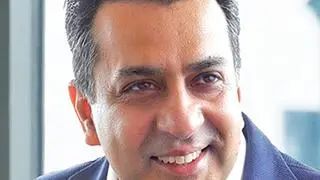The Telecom Commission (TC) on Tuesday decided in favour of relaxation of spectrum-holding caps for mobile companies and also approved awarding of category B licences to virtual network operators (VNOs).
Any relaxation of spectrum-holding cap will help telcos such as Reliance Jio Infocomm, Vodafone and Idea Cellular.
“The TC considered 5-6 issues regarding the overall intraband caps for TSPs (Telecom Service Providers) in the context of restructuring of stressed assets. And it has concurred with TRAI’s recommendations, which basically recommended increasing the overall cap from 25 per cent to 35 per cent and having a cap of 50 per cent on the sub-1 GHz category (700MHz, 800MHz and 900MHz). This will now go for Cabinet approval,” said a senior government official.
The issue of spectrum cap, as well as that of deferred payment tenure will now go to the Cabinet for final approval. The official said both the recommendations will be sent to the Cabinet immediately.
Increased budget for NFSThe commission also approved increasing the budget for the Network for Spectrum (NFS) project. NFS is a dedicated communications network that the Telecom Department is setting up for the defence forces.
Earlier, the TC had asked for a separate committee to be formed, to look into the estimates and cost escalation for the project. Following this, representatives from the Department of Economic Affairs (DEA), the Department of Industrial Policy and Promotion (DIPP) and Niti Aayog along with DoT gave their recommendations to the TC.
The commission has accepted the recommendations. “The total cost has been revised from ₹11,330 crore to ₹24,664 crore now,” the official said.
State-run BSNL will be the implementing agency for NFS.
The NFS project recommendation will also go to the Cabinet for final approval. Other proposals include the issuance of Category B licence to VNOs. The licence will be limited to wireline service providers.
The Telecom Commission in its earlier meeting had also approved the inter-ministerial group’s (IMG) recommendations on providing relief to telecom operators by increasing spectrum payment tenure to 16 years and changing the interest rate from PLR (prime lending rate) to MCLR (marginal cost of funds-based lending rate).
‘A realistic proposition’The IMG was formed last June to address the financial stress of the telecom sector, and the panel had recommended a slew of measures.
“The only way out is merger and consolidation, for which spectrum caps relaxation is absolutely essential because the other option of surrendering spectrum was not recommended by the IMG, whereas this is a realistic proposition.
“ It will benefit in two ways. One, it will enable them to pool their resources and improve network efficiency. Two, earlier, when smaller amounts of spectrum were available, nobody could use it, thus dampening the prospects of auctions, as pointed out by the Telecom Regulatory Authority of India. So now we expect a better response in auctions, too,” the source said.
The other proposals approved by the TC include providing Wi-Fi hotspots as part of the BharatNet project — in 25,000 gram panchayats (GP) in Uttar Pradesh at the cost of ₹400 crore; 323 in Rajasthan for ₹51.88 crore, and 10,000 in Himachal Pradesh at the cost of ₹160 crore.
The commission has also decided to provide BharatNet network in all GPs in the North-East, Jammu and Kashmir, Chhatisgarh, and Andaman and Nicobar Islands, through satellite. “In the North-East, 1,400 GPs will be provided services through BSNL immediately,” the official added.
In Andaman and Nicobar, 2G and 4G services will be provided at a cost of ₹342 crore for 214 sites, compared with an earlier budget of ₹262 crore for 179 towers.








Comments
Comments have to be in English, and in full sentences. They cannot be abusive or personal. Please abide by our community guidelines for posting your comments.
We have migrated to a new commenting platform. If you are already a registered user of TheHindu Businessline and logged in, you may continue to engage with our articles. If you do not have an account please register and login to post comments. Users can access their older comments by logging into their accounts on Vuukle.